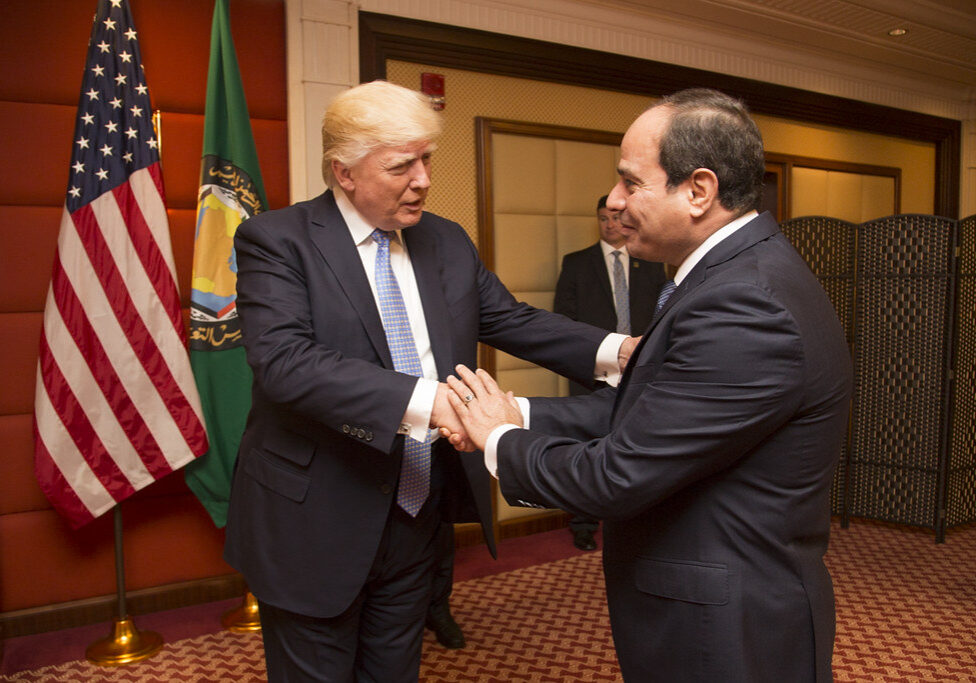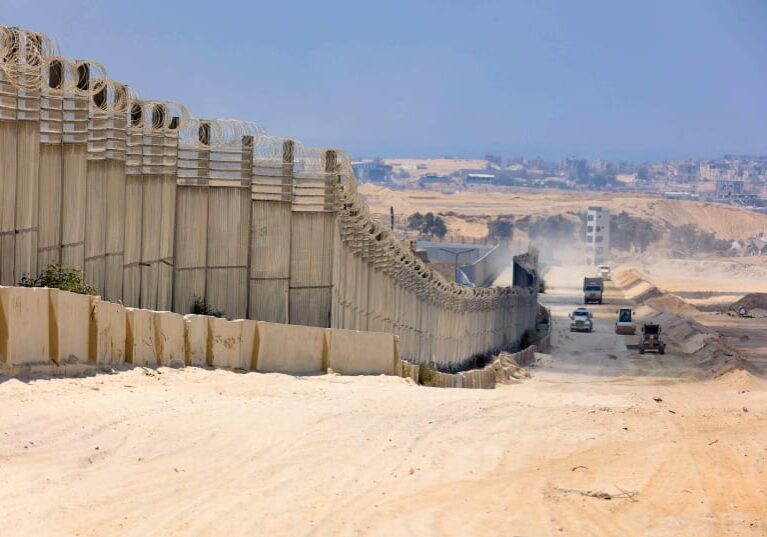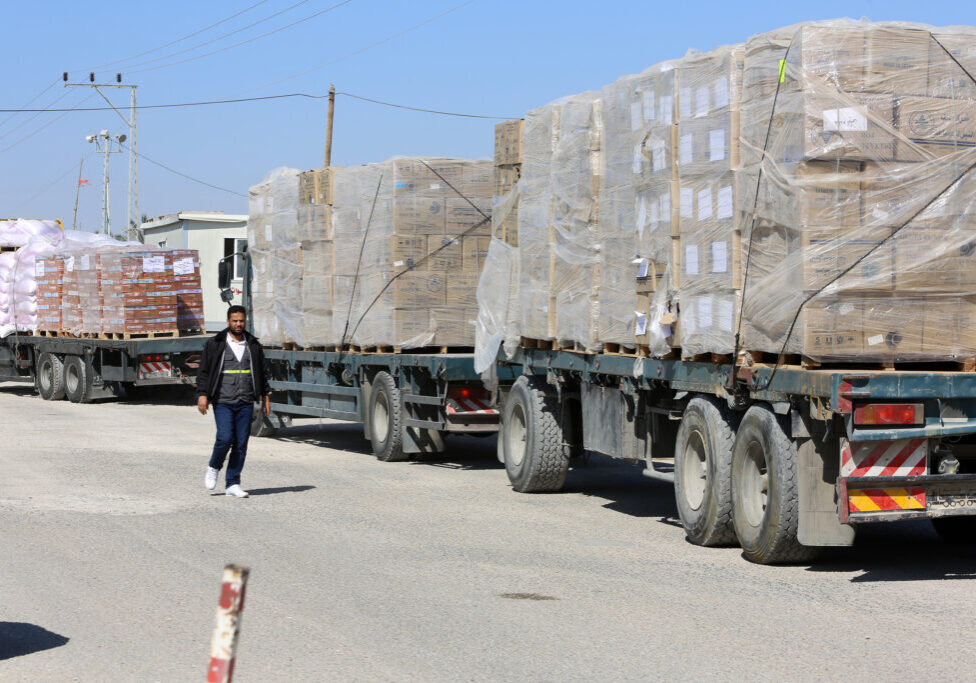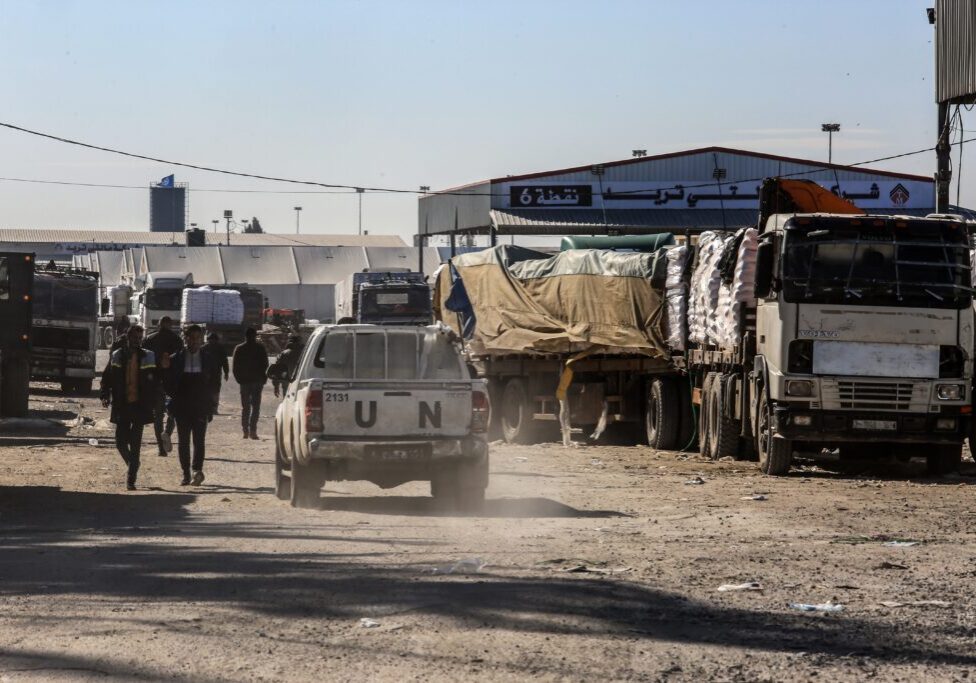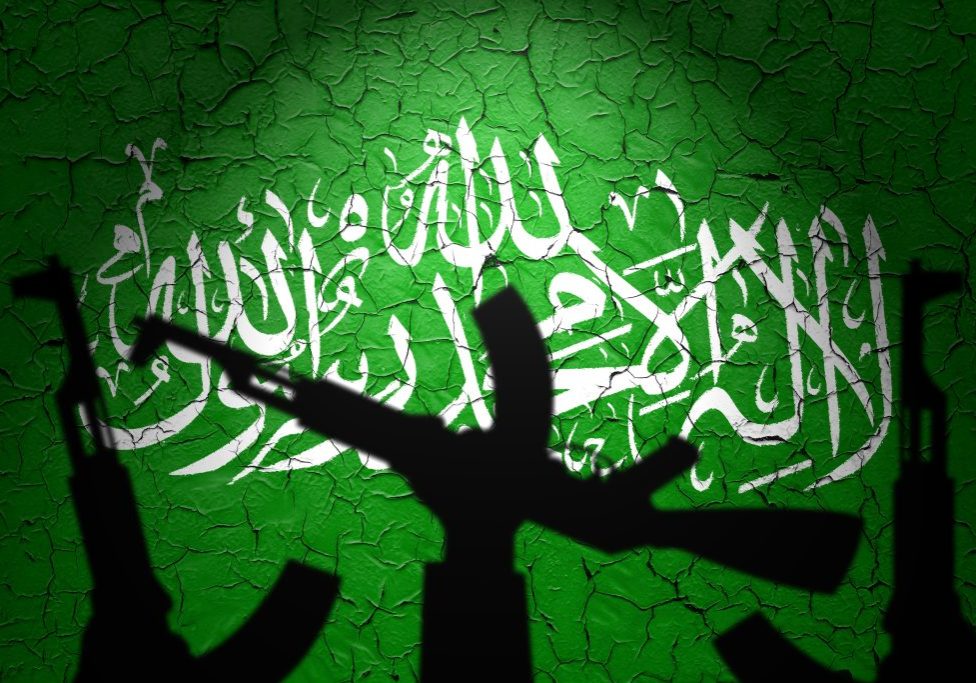Australia/Israel Review
The Road to Tahrir Square
Feb 28, 2011 | Michael Rubin
By Michael Rubin
On December 17, 2010, after his wares were confiscated by police, Tunisian street vendor Muhammad Bouazizi set himself alight to protest corruption. His death may prove to be for Arab autocrats what the fall of the Berlin Wall was for Communist dictatorships. Certainly, just as that event had caught American officials flatfooted 22 years ago, so did the wave of outrage that swept through Arab capitals. Within a month, protests had swept away Zine el-Abidine Ben Ali, Tunisia’s dictator for 23 years. Ben Ali was secular, an American ally, and moderate on Israel, but he had presided over one of the harshest security regimes in a region replete with police states. His flight invigorated Arabs.
They asked: If Tunisians could do it, why not us? Protests spread to Jordan, Yemen, Bahrain, Syria, and Iraqi Kurdistan, but no other country was as ripe for change as Egypt.
With its enormous population crammed into the narrow Nile River Valley, Egypt has long been a tinderbox. Successive American administrations sought to court its leaders since its takeover by nationalist forces led by General Gamal Abdul Nasser in 1952. When Nasser nationalised the Suez Canal in 1956, President Dwight Eisenhower seized the opportunity not to punish an adversary but to appease one. Seeking to ingratiate himself with Nasser, he sided with Egypt against France, Great Britain, and Israel. “How could we possibly support Britain and France, if in doing so we lose the whole Arab world?” he asked.
Eisenhower’s realpolitik won America few favours. Nasser had been handed a victory that confirmed his radical influence from Tangiers to the Tigris, and soon he was not only openly supporting terrorists and revolutionaries throughout the Middle East but also embracing the Soviet Union.
The Egyptian-American relationship warmed only after Nasser’s successor Anwar Sadat expelled Soviet advisers in 1972. The world remembers Sadat as a man of peace, but in fact he accepted Israel only after first trying and failing to annihilate it with a surprise attack in 1973. For Sadat, peace was lucrative.
Not only did Israel return the Sinai, but Egypt also won US$1.3 billion in American military aid annually. The dictator who had sought just five years earlier to destroy the Jews shared the Nobel Peace Prize with one, Israeli Prime Minister Menachem Begin, in 1978.
Hosni Mubarak was sitting beside Sadat at a parade on Oct. 6, 1981, celebrating Egypt’s “great victory” in the Yom Kippur War when soldiers belonging to an offshoot of the radical Islamist group calling itself the “Muslim Brotherhood” stormed the reviewing stand and killed the president. Mubarak, then the vice president, was thrust into Sadat’s role. He did not shine. Power and money became his priorities. Over the next three decades, Mubarak amassed a fortune estimated in the tens of billions as he transformed the country from the cultural centre of the Arab world into its begging capital. There were no contested elections. The parliament – dominated by Mubarak’s National Democratic Party – would nominate the president and then submit his name to the public in a simple ‘yes’ or ‘no’ referendum. Egyptians knew to expect trouble from state security if they voted no.
Meanwhile, unemployment and inflation priced marriage and apartments beyond the reach of the young. Success depended not on talents but on connections. Cairo was bad; peripheral provinces were worse. During the 2006 National Democratic Party conference, I watched as party leaders cut off the microphones of delegates from the Sinai, Upper Egypt, and the Western Desert as they complained about inadequate housing, poor infrastructure, and lack of basic services. If Mubarak treated his own loyalists with indifference, the situation for those without political or family pull was hopeless.
The great surprise is not that millions took to the streets in Egypt, but rather that the United States had for so long predicated its regional security on Mubarak. As protests steamrolled, the Obama Administration hesitated to withdraw its support from Mubarak for two reasons: first, abandonment of a loyal American ally would encourage Arab radicals seeking to overthrow other moderate regimes; and second, the Muslim Brotherhood might fill the vacuum left by Mubarak’s ouster. Neither concern, though very real, could justify standing by Mubarak.
First, the idea that Mubarak was or is a loyal US ally – a view echoed across the political spectrum in the wake of the protests – is a myth. Mubarak remained at the forefront of Israel rejectionism, observing the peace treaty with Israel through entropy. Egyptian unions expelled not only members who cooperated with Israelis but even those who merely suggested it. State officials, state-owned media, and state-appointed mullahs preach the most virulent anti-American and antisemitic conspiracy theories, and due to Egypt’s centrality in the Arab world, have proved crucial to their contagiousness. In 1995, Mubarak’s flagship daily, al-Ahram, accused Israel of spreading the AIDS virus. After a series of shark attacks this past winter, the governor of South Sinai suggested that “what is being said about the Mossad throwing the deadly shark in the sea to hit tourism in Egypt is not out of the question.” While Egypt participated in the coalition to oust Saddam Hussein from Kuwait in 1991, it did so not altruistically but only after the elder President Bush and his European partners agreed to forgive US$14 billion in debt.
Twelve years later, with the second war against Iraq, Mubarak was even less helpful. Not only did Egypt undermine efforts to pressure Saddam to comply with his international commitments, but after his ouster, the Egyptian government actively worked to undermine reconstruction and acceptance of its new government.
Nor was Egypt a reliable partner on issues unrelated to the Middle East. At the United Nations in 2009, Egypt voted alongside the United States with less frequency than did Burma, Cuba, Somalia, Vietnam, and Zimbabwe. Even Egypt’s assistance with American efforts to contain Iranian influence, though useful, have more to do with Egypt’s self-interest than partnership with Washington. To use the word ally to describe Mubarak’s Egypt was and is to engage in diplomatic nicety. He was never an enemy, but not being an enemy is not the same as being an ally.
The second reason to cling to Mubarak – trepidation that the Muslim Brotherhood will take over Egypt – is far more serious and far more worthy of consideration.
The Muslim Brotherhood poses a real threat. Founded in 1928, the group dedicates itself to establishing an Islamic state. It justifies the murder of anyone who stands in its way. In a 1946 assessment of post-World War II threats, the US War Department’s Military Intelligence Division – the precursor to today’s Defense Intelligence Agency – warned that the Muslim Brotherhood was “openly anti-European and secretly anti-Christian and anti-Jewish” and blamed it for a wave of assassinations of more-secular Egyptian politicians. The Brotherhood does not hide its ambitions. To date, its slogan is “Allah is our objective. The Prophet is our leader. The Koran is our law. Jihad is our way. Dying in the way of Allah is our greatest hope.” Its offshoots include Hamas and Islamic Jihad. The group provides a fertile recruiting ground for al-Qaeda.
But Muslim Brotherhood rule need not be imminent. While the Muslim Brotherhood is the best-organised opposition group in Egypt, many Egypt specialists place its natural constituency at only between 20 and 25 percent of Egypt’s population.
The group’s sponsorship of violence in the early 1990s repelled many Egyptians who may once have found its anti-corruption rhetoric attractive. So, too, has the Brotherhood’s religious extremism. In 1995 the group made headlines by forcing respected Koran scholar Hamid Nasr Abu Zayd to divorce his wife against both of their wills after an Egyptian court equated his reformist views with apostasy. (That Mubarak went along with this action shows that he was more interested in co-opting religious extremists than in defeating them.) The Muslim Brotherhood may remain better organised than more secular Egyptian opposition groups not because it is more naturally popular but rather because Mubarak has been ruthless in repressing more liberal opposition forces. Egyptian-American democracy activist Saad Eddin Ibrahim describes Middle Eastern autocrats and theocrats as mirror images of each other. Whereas Mubarak could promote his voice through the state monopoly, the Muslim Brotherhood could espouse its message through the mosque – the only institution the state did not completely control. Together, Ibrahim explained, Mubarak and the Brotherhood had formed “an unholy, unintentional alliance to squeeze and to crush the budding democrats.” With the Muslim Brotherhood strong, even after three decades of Mubarak’s rule, Mubarak was able to demand blind support not only from secular Egyptians upset with his rule but also from Western diplomats, simply by arguing that his fall would bring about an Islamist theocracy, a conclusion the Brotherhood did little to rebut.
As president, George W. Bush recognised this dynamic and sought to break it.
When Mubarak, upset with Ibrahim’s reform advocacy, jailed the 64-year-old activist in 2002, Bush suspended more than US$100 million in aid. Facing more than rhetorical disapproval from Washington for the first time, Mubarak reversed himself and freed Ibrahim. Then, on Jan. 21, 2005, Bush delivered his second inaugural address, in which he declared that “all who live in tyranny and hopelessness can know the United States will not ignore your oppression or excuse your oppressors. When you stand for your liberty, we will stand with you.
Democratic reformers facing repression, prison, or exile can know: America sees you for who you are: the future leaders of your free country.” Mubarak chose to test Bush’s resolve. On Jan. 29, Egyptian security forces arrested Ayman Nour, leader of the opposition Ghad Party, on trumped-up forgery charges. Bush would not dismiss the incident as just an internal Egyptian matter.
Standing with her Egyptian counterpart, Ahmad Abu al-Ghait, at a Washington press conference, Secretary of State Condoleezza Rice chided the Egyptian regime for its treatment of Nour. Rice subsequently decided to bypass Cairo on a planned trip to the region, forcing the regime to cancel abruptly a conference she was to keynote.
Mubarak was furious and used the state-controlled press to lash out. Political cartoonists depicted Bush alternately as Hitler or Satan. The government’s al-Gumhuriyya declared that “America does not have any right to impose upon us its false role of defense of human rights, democracy, and free speech” and accused the United States of being worse than Hitler’s Germany. Likewise, al-Akhbar castigated Rice for “crude intervention in Egyptian judicial matters.” Egypt was not alone. Bush’s approach threatened the established order. In every Arab state, as well as in Turkey and Iran, editorials whined about the American focus on transparency and spun wild conspiracies about American democratisation efforts.
As Bush held firm, Mubarak wavered. Arab heads of state may have disliked Bush, but they respected him. After Bush not only ousted Saddam but oversaw Iraq’s first free elections in January 2005, they understood they could not dismiss his resolve. It is ironic that while American pundits tried to paint the Iraq war as diminishing American influence in the region, even Muammar Gaddafi’s own advisers ascribe the Libyan leader’s nuclear about-face to a combination of fear and respect for Bush after the Iraq invasion. As for Mubarak, in March 2005 he not only ordered the parliament to amend the constitution to allow contested elections, but he also freed Nour.
Still, Mubarak’s embrace of reform was neither open-ended nor sincere. His strategy then – just as it would be facing protesters in Tahrir Square – was to wear down opponents. Mubarak believed he could outlast Bush. No sooner had he announced reform than he eviscerated it. After blessing contested elections, he shortened the campaign to prevent his opponents from getting their message out.
State-controlled media devoted round-the-clock coverage to Mubarak but refused to broadcast his opponents’ speeches and campaign events. Security forces harassed crowds seeking to attend opposition events and rallies. On election day, police cordoned off ballot stations in opposition strongholds. Mubarak won more than 88% of the vote; Nour received 7%.
In his efforts to undermine reform, Mubarak found a surprising and disappointing ally in the US State Department. With the insurgency gaining strength in Iraq, Bush deferred management of Middle East reform to Foggy Bottom. Diplomats crave stability, not change. Not only did many career diplomats wish to punish Bush for launching an Iraq war they deeply opposed, but most ambassadors also believed that Arab autocracy rather than democracy better ensured American national security. Their arguments gained ground in January 2006 after Hamas won the Palestinian elections in Gaza. (The problem in Gaza, however, was not the elections but the State Department’s willingness to bless the participation of groups who sought to enforce their will through the barrel of a gun.) Between 2005 and 2008, the face of American policy in Egypt was Ambassador Francis “Frank” Ricciardone.
Ricciardone believed that Arab dictators better secured American interests than democrats, and so he cast aside the Freedom Agenda. Instead of cultivating liberal and reformist groups, Ricciardone sought to reassure Mubarak. Hence, on March 12, 2006, he told a group of Egyptian university students that “President Mubarak is well known in the United States. He is respected. If he had to run for office in the United States, my guess is he could win elections in the United States as a leader who is a giant on the world stage.”
After Mubarak had rearrested Nour, cancelled municipal elections, and arrested judges who dared to complain, Ricciardone assured an Egyptian news anchor that the United States would apply no pressure on Mubarak to enact political reform or respect human rights. Not only did the Ambassador offer Mubarak veto power over American funds earmarked for independent civil society in Egypt but, in his last year in Cairo, he channeled 90% of non-military aid to the Egyptian public sector.
Had Ricciardone not exempted Egypt from Bush’s Freedom Agenda, not only would there have been more organised alternatives to the Muslim Brotherhood when the Egyptian revolution erupted, but the Obama Administration might now have far more leverage.
As Mubarak’s control ebbed away, many foreign-policy professionals urged Obama to engage the Muslim Brotherhood. The Brookings Institution’s Bruce Riedel, for example, told the New York Times: “If we really want democracy in Egypt, the Muslim Brotherhood is going to be a big part of the picture. Rather than demonising them, we ought to start engaging them now.” His colleague Shadi Hamid argued that the Brotherhood had renounced violence and so there should be no impediment to cooperation: “The Brotherhood hates al-Qaeda and al-Qaeda hates the Brotherhood. So if we’re talking about counter-terrorism, engaging with the Brotherhood will advance our interests in the region.” Should Obama accept these assurances – and there were signs that he might when the White House said it could foresee a role for the Brotherhood in a post-Mubarak government – he may transform a positive movement for change into a disaster that will rock the region for decades.
Here, the 1979 Islamic Revolution is instructive. Reassurances that Obama receives about the Muslim Brotherhood mirror the ones academic specialists provided about Ayatollah Khomeini. “The depiction of him as fanatical, reactionary, and the bearer of crude prejudices seem certainly and happily false,” said Richard Falk, a Princeton political scientist well-regarded by the Carter Administration (and recently a UN official who continues to assert his belief that 9/11 was an inside job). “His close advisers are uniformly composed of moderate, progressive individuals… who share a notable record of concern with human rights.”
Khomeini himself knew how to manipulate well-meaning but gullible Westerners. “I don’t want to have the power of government in my hand; I am not interested in personal power,” he assured the Guardian. Steven Erlanger, a young reporter who would eventually become the New York Times’s chief diplomatic correspondent, filed a dispatch just a day before the embassy takeover in November 1979 arguing that while “the revolution still has a long course to run, the religious phase is drawing to a close even as it is becoming formalised.”
The Iranian experience provides other lessons. A full 10% of Iranians participated in the Islamic Revolution. Most did not seek theocracy. Rather, Khomeini led a broad coalition that included liberals, nationalists, Marxists, and all shades of Islamists. While he consolidated control, he appointed a relative liberal named Mehdi Bazargan. “Khomeini promised us an Islamic democracy,” my tutor, a kindergarten teacher in Isfahan, explained when I first visited Iran. “We wanted to get rid of a dictator, but by the time we realised that there would be no democracy, it was too late.”
Should Obama bless a transitional government that includes the Muslim Brotherhood, it is doubtful Egypt will ever see elections in September 2011. Nor can Obama assume that the Muslim Brotherhood’s assurances that it respects the democratic process are lasting. He should heed former diplomat Edward Djerejian’s 1992 statement, after the nullification of Algeria’s elections, that “while we believe in the principle of ‘one person, one vote,’ we do not support ‘one person, one vote, one time.’”
An army-run transitional authority is not ideal, but it may provide the best hope for a smooth transition. Obama, however, must be prepared to use his bully pulpit loudly and often to ensure that Egypt does not succumb to the Arab penchant for transitions lasting decades. Here Obama should abandon his embrace of moral equivalency and openly push for constitutional reform to infuse the Egyptian government with the checks-and-balances it will need to avoid reversion to dictatorship. Guaranteeing a smooth and democratic transfer of power in the September 2011 elections will go a long way to undercutting anger at the United States for its coddling approach to Mubarak.
While the United States seeks to revise its past association with Mubarak, Obama must recognise that American adversaries and Egyptian populists will use nationalist levers to rally support. Just as Khomeini rallied Iranians regardless of their religious devotion around demands that the United States return the assets the Shah had left in US banks, the Brotherhood will likely demand that the West repatriate the billions Mubarak siphoned off throughout his career. Obama should preempt them by first voicing this demand. There is no reason why dictators should retire as billionaires.
The Accountability Revolution caught both the White House and the State Department as off-guard as it did Arab autocrats. While some regional states,Jordan and Iraq among them, are already promising faster reform, there is a danger that other regional leaders will learn the wrong lessons. They may conclude that the antidote to unrest is greater oppression rather than reform. Here, Obama and Secretary of State Clinton must ensure that the next generation of Ricciardones do not substitute American national security for the ease of a cosy working relationship with regional strongmen.
The Egyptian turmoil should lead to greater introspection at the State Department. Even though Cairo hosts America’s largest embassy after Baghdad, and hundreds of the State Department’s most promising Arabic linguists have passed through its language school in Tunis, no diplomat foresaw this revolution. This should raise questions about how diplomats do their jobs.
Too often American diplomats report on meetings with officials in their host countries. In the aftermath of Egypt’s revolution, Clinton should demand that America’s representatives spend more time socialising in slums and frequenting working-class coffeehouses rather than elite clubs. They should produce fewer memoranda about conversations and more holistic reports on the state of society. This will require better language skills, higher standards for tenure, and less-comfortable circumstances for America’s representatives, but the stakes for change have never been higher.
In the months to come, Obama must be more president than pundit. He cannot substitute statements for decisions. His choices will reverberate for generations. If he chooses wisely, he may usher in a true Arab spring in which Arab leaders will give priority to their society’s betterment rather than seeking to distract society with external hatred. But if Obama chooses poorly, the damage he will do to American national security will last decades.
Michael Rubin is a resident scholar at the American Enterprise Institute; senior lecturer at the US Naval Postgraduate School’s Center for Civil-Military Relations; and a senior editor of the Middle East Quarterly. Books he has authored include Into the Shadows: Radical Vigilantes in Khatami’s Iran ( 2001) and Eternal Iran: Continuity and Chaos (2005), and he co-edited Dissent and Reform in the Arab World: Empowering Democrats (2008). © Commentary Magazine. Reprinted by permission. All Rights Reserved.
Tags: Egypt

